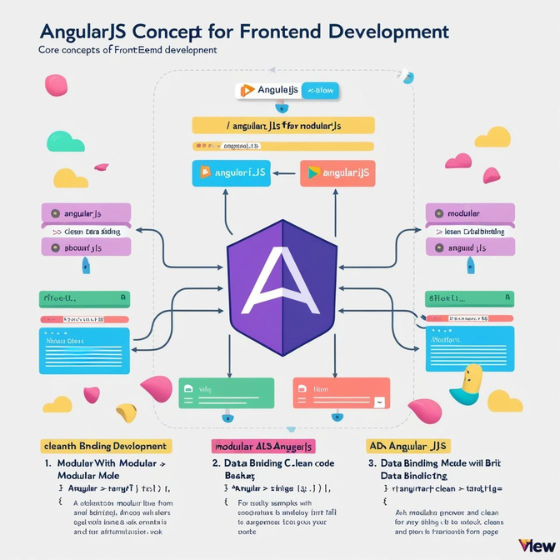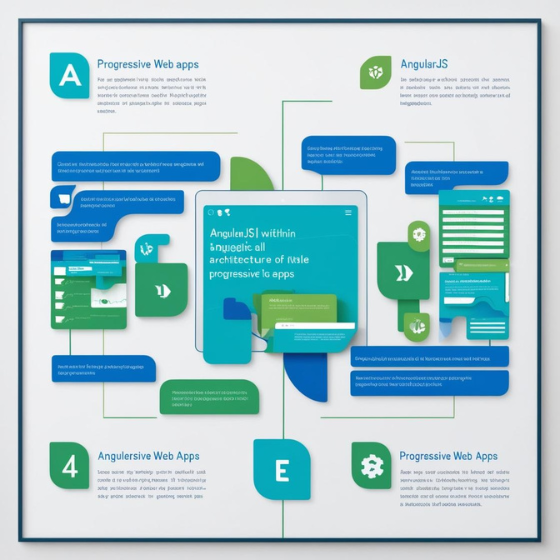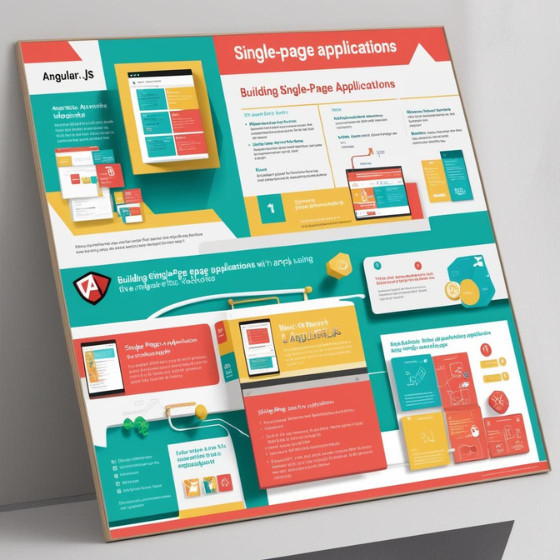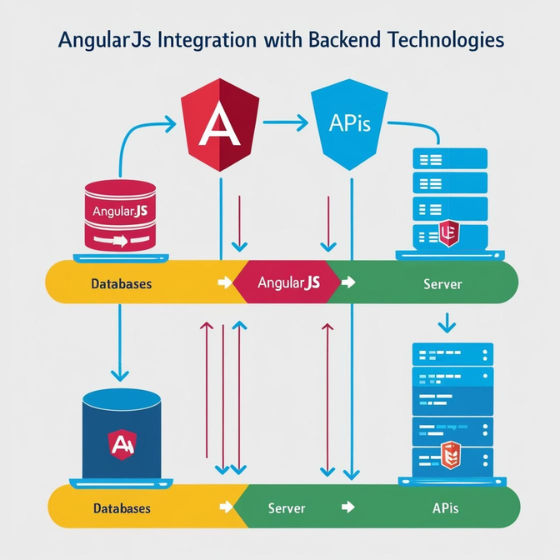Understanding Angular.js for Frontend Development: The Essential Guide for Modern Developers
In the ever-evolving landscape of web development, Angular.js stands as a powerful tool, enabling developers to craft dynamic and responsive user interfaces with ease. But why is understanding Angular.js for frontend development so crucial in today’s digital age? Consider this: a study shows that 88% of online consumers are less likely to return to a site after a poor user experience. Angular.js can bridge this gap by providing seamless and interactive web applications that keep users engaged.
This blog will guide you through the fundamentals of Angular.js, its benefits, real-world applications, and why it remains a popular choice among developers. Whether you’re a seasoned coder or a business owner aiming to improve your digital presence, mastering Angular.js is an investment worth making.
What is Angular.js and Why is It Important?
Angular.js is an open-source JavaScript framework maintained by Google. Designed to simplify the development of dynamic web applications, Angular.js is particularly useful for building single-page applications (SPAs), where the user experiences a seamless flow without frequent page reloads.
Key Features of Angular.js:
- Two-Way Data Binding: Syncs data between the model and the view in real-time.
- Dependency Injection: Simplifies code by providing necessary services directly.
- Directives: Extend HTML functionalities for dynamic, reusable components.
- MVW Architecture (Model-View-Whatever): Enables modular and organized coding practices.
Understanding Angular.js for frontend development allows developers to build applications faster, maintain cleaner code, and deliver superior user experiences.
Benefits of Using Angular.js in Frontend Development
1. Faster Development with Reusable Components
One of Angular.js’s standout features is its ability to create reusable components. This means developers can use the same code snippets across various parts of a project, saving both time and effort.
Example: In e-commerce platforms, a product card displaying the name, price, and image can be reused across categories.
2. Improved User Experience Through Real-Time Updates
Thanks to two-way data binding, Angular.js ensures that changes made in the UI are instantly reflected in the application’s data model, and vice versa. This eliminates delays, enhancing user experience.
3. Scalability for Growing Projects
Angular.js’s modular architecture makes it easy to scale applications as project requirements grow. Its structured approach reduces the complexity of adding new features or updates.
4. Strong Community and Ecosystem
Being backed by Google and supported by a vast community of developers ensures that Angular.js is continuously updated with new features and solutions to common problems.
Real-World Applications of Angular.js
Understanding Angular.js for frontend development is key to leveraging it in various industries. Below are some examples where Angular.js has made a significant impact:
1. FinTech Platforms
Angular.js is widely used to create secure and interactive dashboards for financial applications. Its ability to handle large data sets makes it a preferred choice for FinTech startups.
2. E-Commerce Websites
Many e-commerce giants rely on Angular.js for its responsive design capabilities, ensuring users have a smooth shopping experience across devices.
3. Healthcare Applications
The framework’s dynamic data binding is invaluable in healthcare platforms, where real-time updates are critical for patient management and diagnostics.
Explore how Angular.js can transform your business by checking out our web development services.
How Sodio Enhances Frontend Development with Angular.js
At Sodio, we specialize in leveraging Angular.js to build user-centric web applications tailored to your business needs. Here’s how we ensure excellence:
- Customized Solutions: Every project is unique. We design tailored solutions that align with your goals.
- Agile Development: Our team uses Agile methodologies for efficient and transparent project execution.
- Seamless Integration: From legacy systems to third-party tools, we ensure smooth integration for your Angular.js projects.
Common Challenges and How to Overcome Them
1. Learning Curve
Angular.js, with its unique syntax and concepts, can be daunting for new developers. However, comprehensive documentation and community support make it manageable.
Pro Tip: Break your learning into manageable chunks, focusing on one feature at a time.
2. Performance Issues in Large Applications
Handling large-scale applications can lead to slower performance. Solutions like lazy loading and optimizing watchers help mitigate these challenges.
3. Debugging Complex Applications
While Angular.js offers powerful features, debugging can be complex. Using tools like Angular Augury can simplify the process.
Why Choose Angular.js Over Other Frameworks?
When comparing Angular.js to frameworks like React or Vue.js, it’s clear that each has its strengths. However, Angular.js offers a unique combination of features that make it ideal for certain projects:
- Comprehensive Framework: Unlike React, Angular.js doesn’t require additional libraries for basic functionalities like routing.
- Real-Time Updates: Perfect for applications that demand instant data syncing.
- Stability: Long-term support by Google ensures reliability for enterprise applications.
Steps to Get Started with Angular.js
If you’re new to Angular.js, follow these steps to kickstart your journey:
- Install Angular.js: Use npm or a CDN to set up the framework.
- Learn the Basics: Understand key concepts like directives, controllers, and services.
- Build Your First Application: Start small by creating a simple SPA.
- Optimize Your Code: Leverage tools like Angular CLI for efficient development.
For expert guidance, partner with Sodio to ensure a seamless development process.
Conclusion: The Future of Angular.js in Web Development
As technology continues to evolve, frameworks like Angular.js remain integral to building responsive, scalable, and dynamic web applications. Understanding Angular.js for frontend development is not just a technical skill but a gateway to delivering exceptional user experiences.
Ready to elevate your business with cutting-edge web solutions? Explore our frontend development services or contact our team to discuss your project today!







